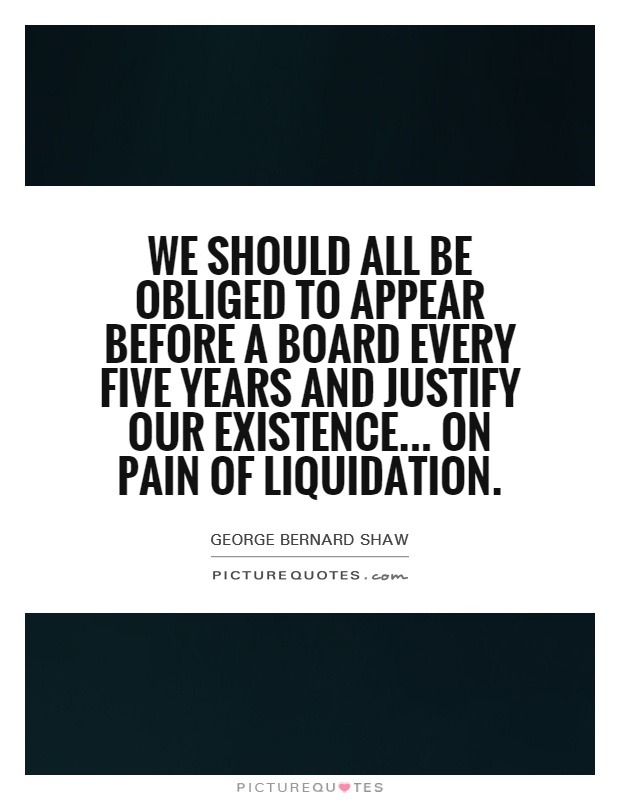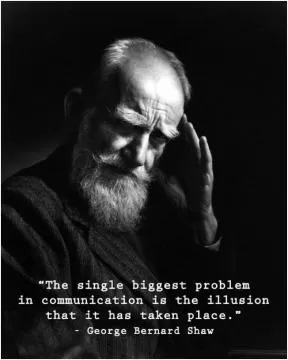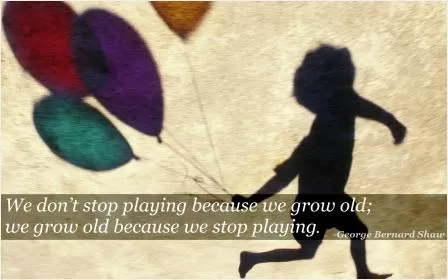We should all be obliged to appear before a board every five years and justify our existence... On pain of liquidation

We should all be obliged to appear before a board every five years and justify our existence... On pain of liquidation
George Bernard Shaw, the renowned playwright and critic, was known for his sharp wit and provocative ideas. One of his most famous quotes is, “We should all be obliged to appear before a board every five years and justify our existence... On pain of liquidation.” This statement reflects Shaw’s belief in the importance of accountability and self-reflection in society.Shaw believed that individuals should be held accountable for their actions and contributions to society. By appearing before a board every five years, people would be forced to reflect on their lives and justify their existence. This process would ensure that individuals are actively contributing to the betterment of society and not simply coasting through life without purpose.
The idea of “liquidation” for those who fail to justify their existence may seem harsh, but Shaw believed that it was necessary in order to weed out those who are not actively contributing to society. By holding individuals accountable for their actions, Shaw believed that society as a whole would benefit from a more engaged and productive citizenry.
Shaw’s belief in the importance of self-reflection and accountability is evident in many of his works. In plays such as “Pygmalion” and “Man and Superman,” Shaw explores themes of personal growth and self-discovery. By forcing individuals to justify their existence every five years, Shaw believed that people would be more likely to take responsibility for their actions and strive for self-improvement.
While Shaw’s idea of appearing before a board every five years may seem extreme, the underlying message is clear: we all have a responsibility to contribute to society and justify our existence. By holding ourselves accountable and actively working towards self-improvement, we can create a more engaged and productive society.












 Friendship Quotes
Friendship Quotes Love Quotes
Love Quotes Life Quotes
Life Quotes Funny Quotes
Funny Quotes Motivational Quotes
Motivational Quotes Inspirational Quotes
Inspirational Quotes